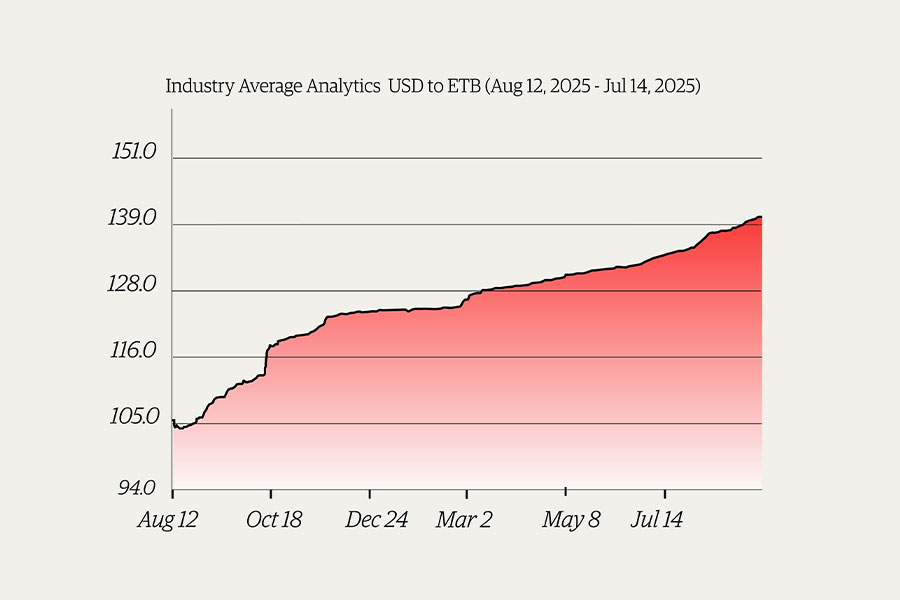
Electric utility bill payments services, which have been handled by Kifiya Financial Technologies, will be entirely moved to the Commercial Bank of Ethiopia (CBE) by the end of this fiscal year.
The services will be switched to the state-owned bank when the agreement between the Ethiopian Electric Utility (EEU) and Kifiya Financial Technologies expires at the end of June.
To use the service, subscribers will be need to register on CBE’s online banking system. Then, their monthly bills will be sent to CBE’s database, which the EEU will also access, and the bill amount will be automatically deducted from subscribers’ accounts. The users will be notified of the transfer via text message.
EEU, which has 2.9 million subscribers, is moving the service to the Bank in order to make delivery efficient and convenient for subscribers, according to Demeke Robi, deputy CEO of EEU.
“It will save the time and energy of our clients,” Demeke told Fortune.
Seven-year-old Kifiya was founded by five individuals, including CEO Munir Duri, and has been handling utility payments for electricity customers along with telecom and water supply through its electronic platform, Lehulu, a one-stop billing system. It currently handles close to a million transactions a month in 42 outlets.
If the agreement is not renewed, Kifiya will be aggressively moving to other business areas, according to Ahmed Mohamed, general manager of Lehulu.
“We’re working on e-commerce, ticketing services for mass transit and others payment systems,” Ahmed told Fortune.
CBE is also dealing with the city traffic police and water supply authority to receive fees for fines and utility payments, which also had been managed by Kifiya Technologies.
EEU has already moved the monthly bill of 27,000 subscribers to the Bank’s online system.
The agreement was signed early last week at EEU headquarters on Cunningham Street between its CEO, Shiferaw Telila, and Dereje Dufa, vice president of Banking Service at the state bank.
Subscribers already moved to the Bank’s online service are commercial customers, non-governmental organisations, governmental institutions and businesses that consume high level of electric power.
“This is the initial step, and we will include all our customers in the new system gradually,” Shiferaw told Fortune.
EEU serves 2.9 million subscribers across the country and collected five billion Birr during the last fiscal year. The utility is still negotiating with the Bank on how to move the entire bill payment service of its subscribers, according to Demeke.
“Client and EEU will not be charged for the service. We will just use it as a strategy to widen our customer base,” said Derege.
The service shift will have positive impacts on customers, the service provider and the Bank, according to Habtamu Berhanu (PhD), a lecturer at Addis Abeba University’s College of Business & Economics for more than a decade and a half.
“It will simplify the life of the customer,” he said.
Currently, less than a third of the population has access to electricity, although the Second Edition of the Growth & Transformation Plan projected to reach 90pc by 2020. This makes the country one of the largest populations that have no access to electricity in Sub-Saharan Africa, next to Nigeria.
To increase access to electricity, the government has been subsidising electric power tariffs until the recent adjustment of December 2018, which shocked users when it was put into force.
Recently, Ethiopian Electric Power, responsible for power generation in the country, removed high-consumption customers that use more than 132Kv and those paying a minimum of five million Birr a month in electric bills from the EEU list of subscribers and proceeded to bill them directly. The move that has created acrimony between the two state enterprises.
PUBLISHED ON
Jan 26,2019 [ VOL
19 , NO
978]

Radar | May 02,2020

Fortune News | Oct 12,2019

Money Market Watch | Sep 21,2025

Radar | Aug 30,2025

Fortune News | Jan 23,2021

Radar | Aug 22,2020

Fortune News | Mar 07,2020

Verbatim | Oct 08,2022

Agenda | Oct 20,2024

Radar | Jun 30,2024

Dec 22 , 2024 . By TIZITA SHEWAFERAW
Charged with transforming colossal state-owned enterprises into modern and competitiv...

Aug 18 , 2024 . By AKSAH ITALO
Although predictable Yonas Zerihun's job in the ride-hailing service is not immune to...

Jul 28 , 2024 . By TIZITA SHEWAFERAW
Unhabitual, perhaps too many, Samuel Gebreyohannes, 38, used to occasionally enjoy a couple of beers at breakfast. However, he recently swit...

Jul 13 , 2024 . By AKSAH ITALO
Investors who rely on tractors, trucks, and field vehicles for commuting, transporting commodities, and f...

Oct 25 , 2025
The regulatory machinery is on overdrive. In only two years, no fewer than 35 new pro...

Oct 18 , 2025
The political establishment, notably the ruling party and its top brass, has become p...

Oct 11 , 2025
Ladislas Farago, a roving Associated Press (AP) correspondent, arrived in Ethiopia in...

Oct 4 , 2025
Eyob Tekalegn (PhD) had been in the Governor's chair for only weeks when, on Septembe...